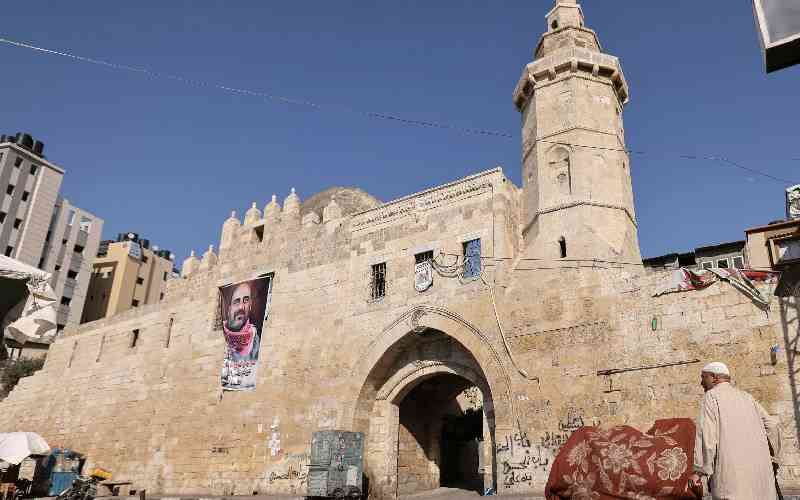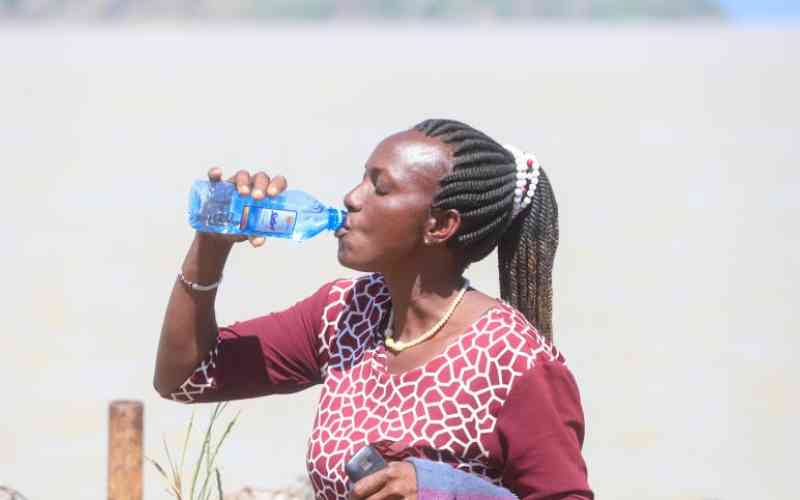Kenya: In the last five years, Kenya has spent Sh100 million to prepare for infectious haemorrharrgic fevers, including the deadly Ebola reported in several West African countries.
Director of Medical Services Nicholas Muraguri, yesterday, said Kenya has built laboratories and trained staff, among other measures to strengthen Kenya’s capacity to deal with Ebola and 20 other haemorrhagic fevers.
“We have built level three specialised laboratories located at Kenya Medical Research Institute (Kemri) for testing of these 21 haemorrhagic fevers that require special laboratories and highly trained staff to manage the situation in case of outbreaks,” said Dr Muraguri.
And even as rumours about the bleeding episodes that accompany Ebola seem to spread faster than the disease, the Government this week moved to allay fears that the deadly virus was in Kenya.
The Ministry of Health said they had deployed personnel and provided necessary equipment at airports, border points and at ports to screen all entrants.
Muraguri said these measures would ensure prompt detection, notification and appropriate management of any suspected case.
Surveillance
He said although the affected countries do not border Kenya, surveillance especially for passengers arriving at the airports had been instituted and self-profiling done to establish exposure to the deadly virus.
“We are working with major airlines with flights from West Africa, Kenyan security, Kenya Airports Authority and the Ministry of Health to profile all passengers and urging them to self-evaluate for the symptoms,” Muraguri said.
In the event there would be symptomatic passengers, he explained that, there was an isolation room at the airport pending further investigations under quarantine in collaboration with Kemri and Kenyatta National Hospital (KNH).
“Upon getting specimens of a suspected patient, Kemri will give results within four hours and from then management commences immediately,” Muraguri said adding the four-hour duration had been fast-tracked for emergencies.
There is no specific treatment for Ebola but the patient receives supportive therapy, which includes balancing the fluids and electrolytes, managing blood pressure and treating symptoms and infections.
Falsehoods about the disease complicate the spreading of awareness. In December 2011, a 29-year-old woman rushed to KNH bleeding from the nose, ears, and mouth was rumoured to have contracted Ebola only for postmortem results to indicate she died from a respiratory infection.
Dispelled rumours
Muraguri dispelled rumours on fast and undetected mass infections to Kenya adding that the risk of travelers contracting Ebola is considered low because it requires direct contact with body fluids or secretions such as urine, blood, sweat or saliva.
Stay informed. Subscribe to our newsletter
Epidemiologists warn that not all haemorrhagic diseases should be directly associated with Ebola yet it remains critical to watch out for signs like, vomiting, headache, abdominal pain and diarrhoea, also present in more than 80 per cent of the cases.
Muraguri assured that Kenya has the capacity to manage Ebola following the setting up of a disease surveillance rapid response team and laboratory capacity to diagnose all haemorrhagic fevers. “We are therefore well-prepared to identify and deal with any potential cases of Ebola within 24 hours,” he said.
Health experts say symptoms usually appear after an incubation period of between four and 21-days with the average incubation period from contact with an infected person being seven days.
Meanwhile, Sierra Leone has declared a public-health emergency over the outbreak.
 The Standard Group Plc is a
multi-media organization with investments in media platforms spanning newspaper
print operations, television, radio broadcasting, digital and online services. The
Standard Group is recognized as a leading multi-media house in Kenya with a key
influence in matters of national and international interest.
The Standard Group Plc is a
multi-media organization with investments in media platforms spanning newspaper
print operations, television, radio broadcasting, digital and online services. The
Standard Group is recognized as a leading multi-media house in Kenya with a key
influence in matters of national and international interest.
 The Standard Group Plc is a
multi-media organization with investments in media platforms spanning newspaper
print operations, television, radio broadcasting, digital and online services. The
Standard Group is recognized as a leading multi-media house in Kenya with a key
influence in matters of national and international interest.
The Standard Group Plc is a
multi-media organization with investments in media platforms spanning newspaper
print operations, television, radio broadcasting, digital and online services. The
Standard Group is recognized as a leading multi-media house in Kenya with a key
influence in matters of national and international interest.









